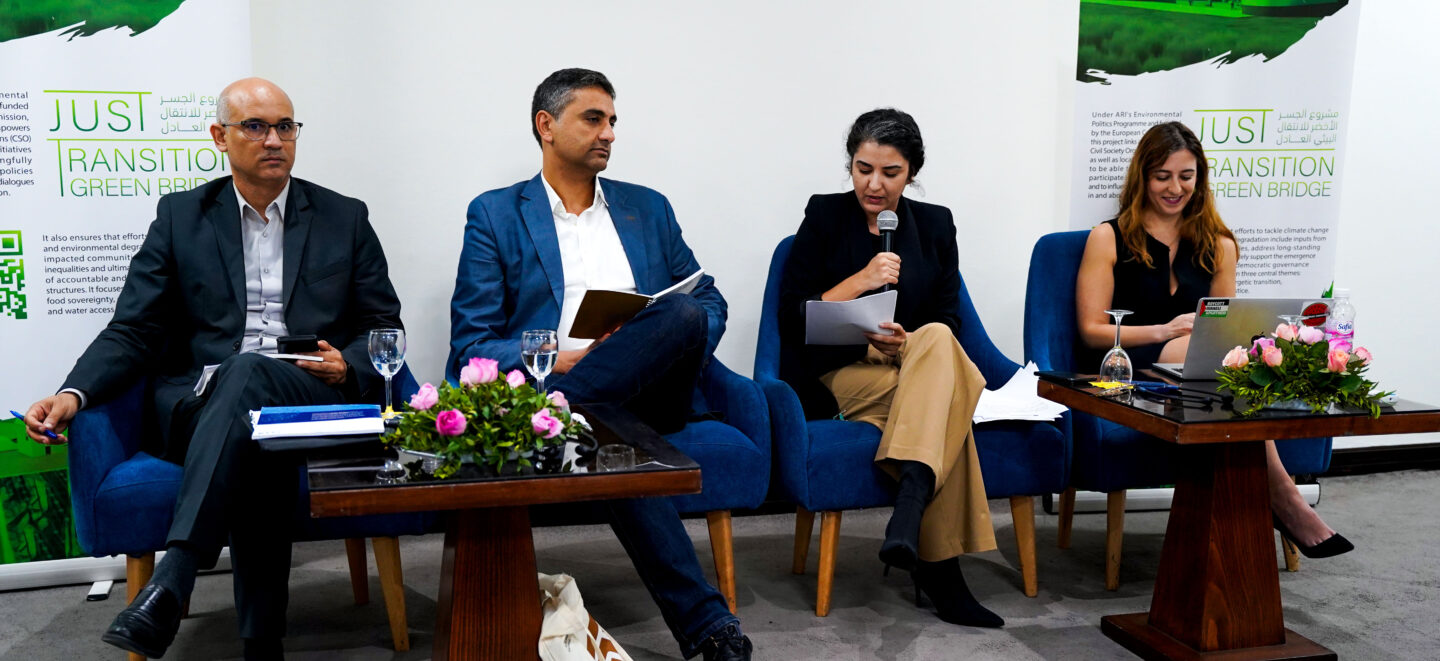Green Colonialism & Tunisia's Energy Future: Insights From A Roundtable Report

Welcome to your ultimate source for breaking news, trending updates, and in-depth stories from around the world. Whether it's politics, technology, entertainment, sports, or lifestyle, we bring you real-time updates that keep you informed and ahead of the curve.
Our team works tirelessly to ensure you never miss a moment. From the latest developments in global events to the most talked-about topics on social media, our news platform is designed to deliver accurate and timely information, all in one place.
Stay in the know and join thousands of readers who trust us for reliable, up-to-date content. Explore our expertly curated articles and dive deeper into the stories that matter to you. Visit Best Website now and be part of the conversation. Don't miss out on the headlines that shape our world!
Table of Contents
Green Colonialism & Tunisia's Energy Future: Insights from a Roundtable Report
Tunisia's ambitious renewable energy goals are clashing with concerns about neo-colonial power dynamics. A recent roundtable report highlights the complex interplay between international investment in green energy projects and the potential for perpetuation of unequal power structures, a phenomenon increasingly recognized as "green colonialism." The report, drawing from discussions with Tunisian experts, policymakers, and international stakeholders, paints a nuanced picture of the country's energy transition.
The Promise and Peril of Renewable Energy in Tunisia:
Tunisia, facing energy security challenges and seeking to mitigate climate change, has set ambitious targets for renewable energy adoption. The potential is significant, with abundant sunshine and wind resources. However, the path to achieving these targets is fraught with challenges, including:
-
Foreign Investment and Control: A large portion of investment in Tunisian renewable energy projects comes from international corporations and governments. This raises concerns about the extent of local control over these crucial energy resources and potential exploitation of natural resources and labor. The report emphasizes the need for transparent and equitable partnerships that prioritize Tunisian interests.
-
Technological Dependence: Relying heavily on foreign technology and expertise can lead to technological dependence, limiting Tunisia's ability to develop its own capacity in the long term. The report advocates for strengthening local skills and institutions to ensure sustainable development in the energy sector.
-
Community Engagement and Land Rights: The implementation of large-scale renewable energy projects, such as solar farms and wind parks, can impact local communities and their traditional land use practices. The report highlights the critical need for meaningful community consultations and the protection of land rights. Ignoring these aspects could lead to social unrest and project failure.
-
Debt Sustainability: Securing financing for renewable energy projects often involves borrowing from international institutions. This can lead to increased national debt and potentially compromise Tunisia's economic sovereignty if not carefully managed. The report stresses the importance of sustainable financing mechanisms that do not burden future generations.
Combating Green Colonialism: Toward a Just Energy Transition:
The roundtable report doesn't shy away from the uncomfortable reality of "green colonialism" and offers several recommendations for a more equitable energy transition:
-
Prioritizing Local Ownership and Participation: Tunisian companies and communities should be given priority in ownership and decision-making processes related to renewable energy projects.
-
Investing in Local Capacity Building: Significant investments are needed in education, training, and research to develop local expertise in renewable energy technologies and management.
-
Promoting Fair Trade Practices: Ensuring fair prices for energy resources and preventing exploitation of Tunisian labor are crucial for a just transition.
-
Strengthening Regulatory Frameworks: Clear and robust regulatory frameworks are needed to protect Tunisian interests, ensure environmental sustainability, and promote transparency in the energy sector.
Conclusion: A Path Forward for Tunisia's Energy Future
Tunisia's energy transition holds immense potential, but success requires careful navigation of complex political, economic, and social considerations. By addressing the concerns raised in the roundtable report, Tunisia can harness the power of renewable energy while avoiding the pitfalls of green colonialism and building a truly sustainable and equitable energy future. The report serves as a critical call to action, urging international stakeholders to engage responsibly and support a just energy transition in Tunisia and other developing nations facing similar challenges. Further research and dialogue are needed to ensure that the global shift towards renewable energy benefits all, not just a select few. Learn more about sustainable development goals and their impact on global energy transitions by visiting [link to a reputable source on sustainable development goals].

Thank you for visiting our website, your trusted source for the latest updates and in-depth coverage on Green Colonialism & Tunisia's Energy Future: Insights From A Roundtable Report. We're committed to keeping you informed with timely and accurate information to meet your curiosity and needs.
If you have any questions, suggestions, or feedback, we'd love to hear from you. Your insights are valuable to us and help us improve to serve you better. Feel free to reach out through our contact page.
Don't forget to bookmark our website and check back regularly for the latest headlines and trending topics. See you next time, and thank you for being part of our growing community!
Featured Posts
-
 June 20th Mlb Game Tigers At Rays Predictions Starting Pitchers And Stats
Jun 21, 2025
June 20th Mlb Game Tigers At Rays Predictions Starting Pitchers And Stats
Jun 21, 2025 -
 Braves Gm Alex Anthopoulos On Chris Sale Trade Rumors And The 2025 Deadline
Jun 21, 2025
Braves Gm Alex Anthopoulos On Chris Sale Trade Rumors And The 2025 Deadline
Jun 21, 2025 -
 Braves Roster Move Dfa D Pitcher Replaced By Promising Prospect Vs Marlins
Jun 21, 2025
Braves Roster Move Dfa D Pitcher Replaced By Promising Prospect Vs Marlins
Jun 21, 2025 -
 Wnba Fever Coach Stephanie White Departs Austin Kelly Appointed Interim Coach
Jun 21, 2025
Wnba Fever Coach Stephanie White Departs Austin Kelly Appointed Interim Coach
Jun 21, 2025 -
 Fan Scales Wrigley Field Net For Sal Frelicks Bat Video Goes Viral
Jun 21, 2025
Fan Scales Wrigley Field Net For Sal Frelicks Bat Video Goes Viral
Jun 21, 2025
